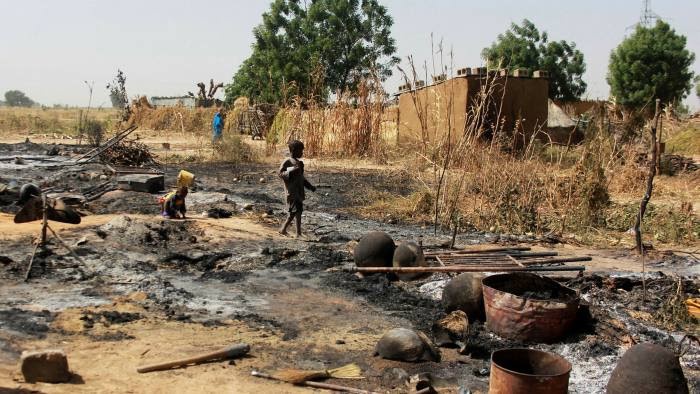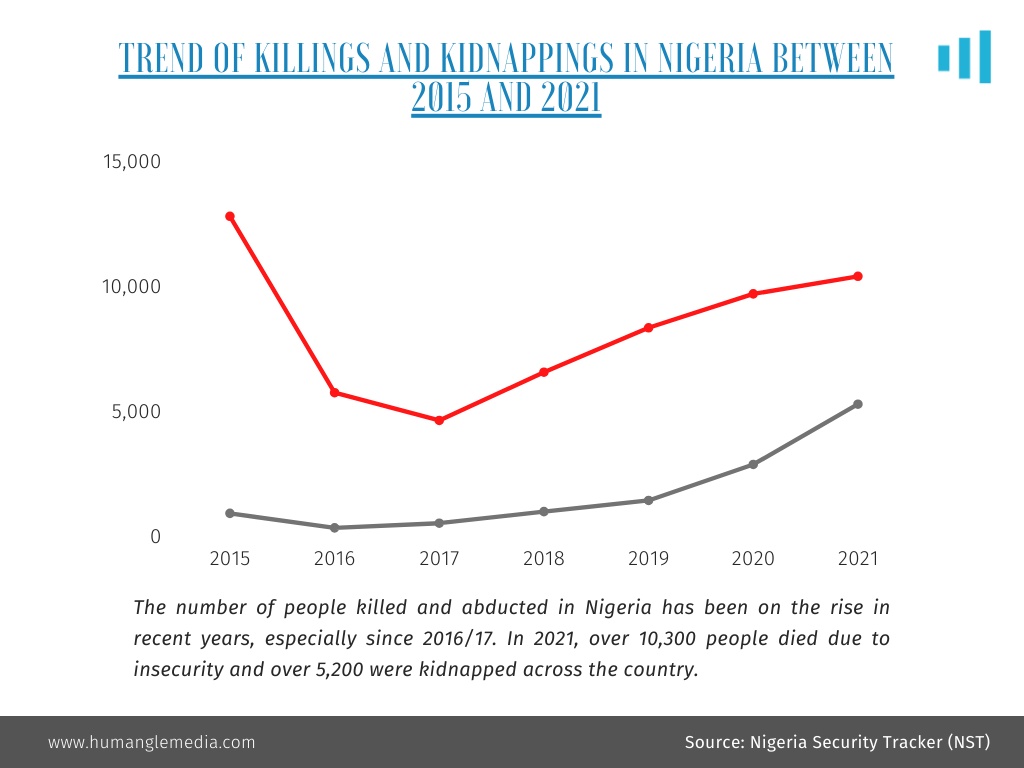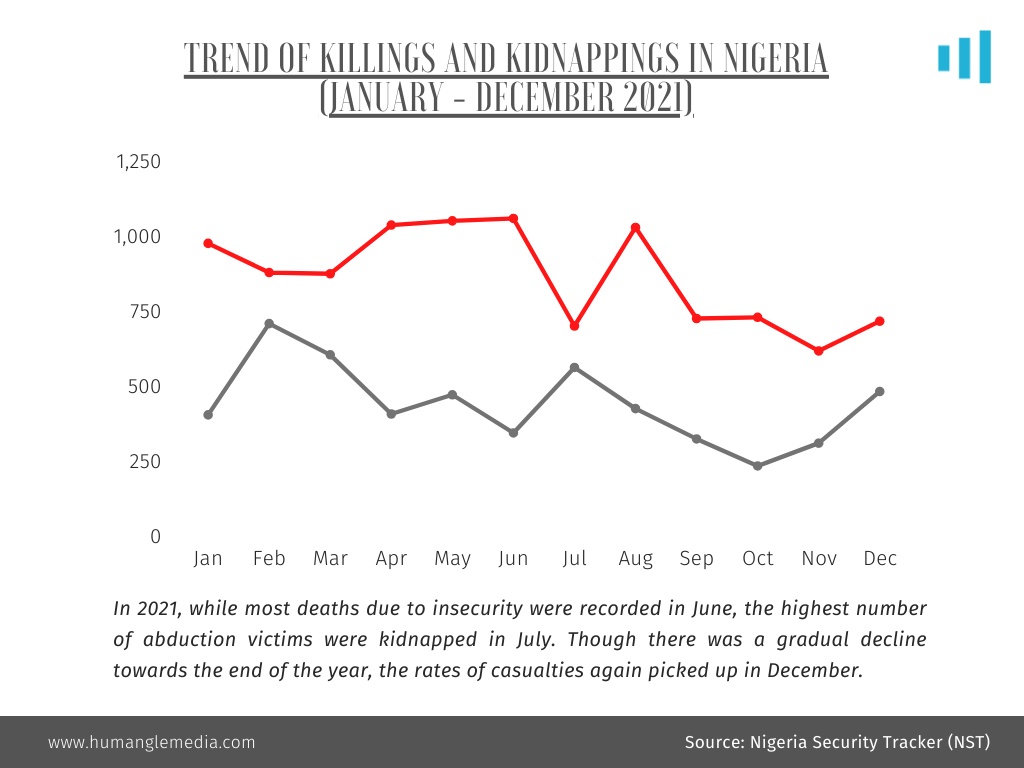Insecurity: Nearly 10,400 Killed In Nigeria In 2021, Worst Toll In 6 Years
Likewise, victims of kidnapping in the country were over 5,000 last year — equally the worst rate since 2015 at least.

In 2021, Nigeria recorded its worst insecurity-related death toll since 2016, an analysis of data collected by the Council on Foreign Relations (CFR) has shown.
At least 10,398 persons were killed across the country between Jan. 1 and Dec. 31, 2021. Among the fatalities were 4,835 civilians and 890 security personnel.
According to catalogued press reports, 1,760 Boko Haram members, 107 robbers, and 92 kidnappers were also killed.
HumAngle’s analysis of figures over a seven-year period revealed that not as many fatalities have been recorded since 2015 when 12,795 people were killed. In fact, slightly more people were killed last year than in 2016 and 2017 combined, when the fatalities were respectively 5,748 and 4,638.
The rates of kidnapping had similarly dropped between 2015 and 2016, with the number of victims falling from 926 to 347. But, ever since, it has grown at an alarming rate annually, from 532 in 2017 to 994, 1,441, and 2,879 in the next three years. Last year, the figure nearly doubled again as 5,287 people were reported abducted.
In line with what the data indicates, Lai Mohammed, Nigerian Information Minister, had said on Dec. 30 that insecurity was the “biggest challenge” the country faced in 2021.

While the rates of kidnapping in 2021 were highest between February and March, the greatest death tolls were recorded in the following months, between April and June.

Meanwhile, based on an analysis of the figures up to Dec. 27, most Boko Haram/Islamic State West Africa Province (ISWAP) terrorists were killed between January and March. The figures then dropped sharply until the end of the year, starting from October.
In terms of the gross death toll, Borno in the Northeast, remains the most insecure state in Nigeria, followed by Zamfara, Kaduna, Niger, Benue, and Sokoto states, which are in the Northwest and North-central regions. Likewise, throughout the year, most people were abducted in Zamfara, Kaduna, Niger, Katsina, Borno, Sokoto, and Kebbi.
In his new year speech, President Muhammadu Buhari had assured that insecurity remained a top concern for him and said the government was not only tackling the threat on the battlefield but planned to deploy multifaceted solutions “that will be targeted at addressing human security at the grassroots, before it leads to insecurity.”
Only days earlier, Aminu Masari, the governor of Buhari’s home state, Katsina, had urged residents to arm and defend themselves because the number of security personnel available was not enough to protect them.
“If you die while trying to defend yourself, you’ll be considered a martyr. It’s surprising how a bandit would own a gun while a good man trying to defend himself and his family doesn’t have one,” Masari had suggested.
Support Our Journalism
There are millions of ordinary people affected by conflict in Africa whose stories are missing in the mainstream media. HumAngle is determined to tell those challenging and under-reported stories, hoping that the people impacted by these conflicts will find the safety and security they deserve.
To ensure that we continue to provide public service coverage, we have a small favour to ask you. We want you to be part of our journalistic endeavour by contributing a token to us.
Your donation will further promote a robust, free, and independent media.
Donate HereStay Closer To The Stories That Matter




